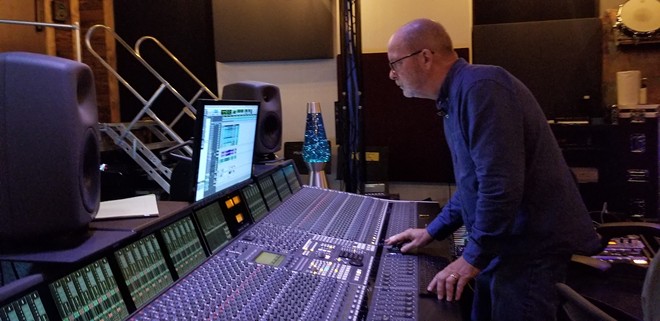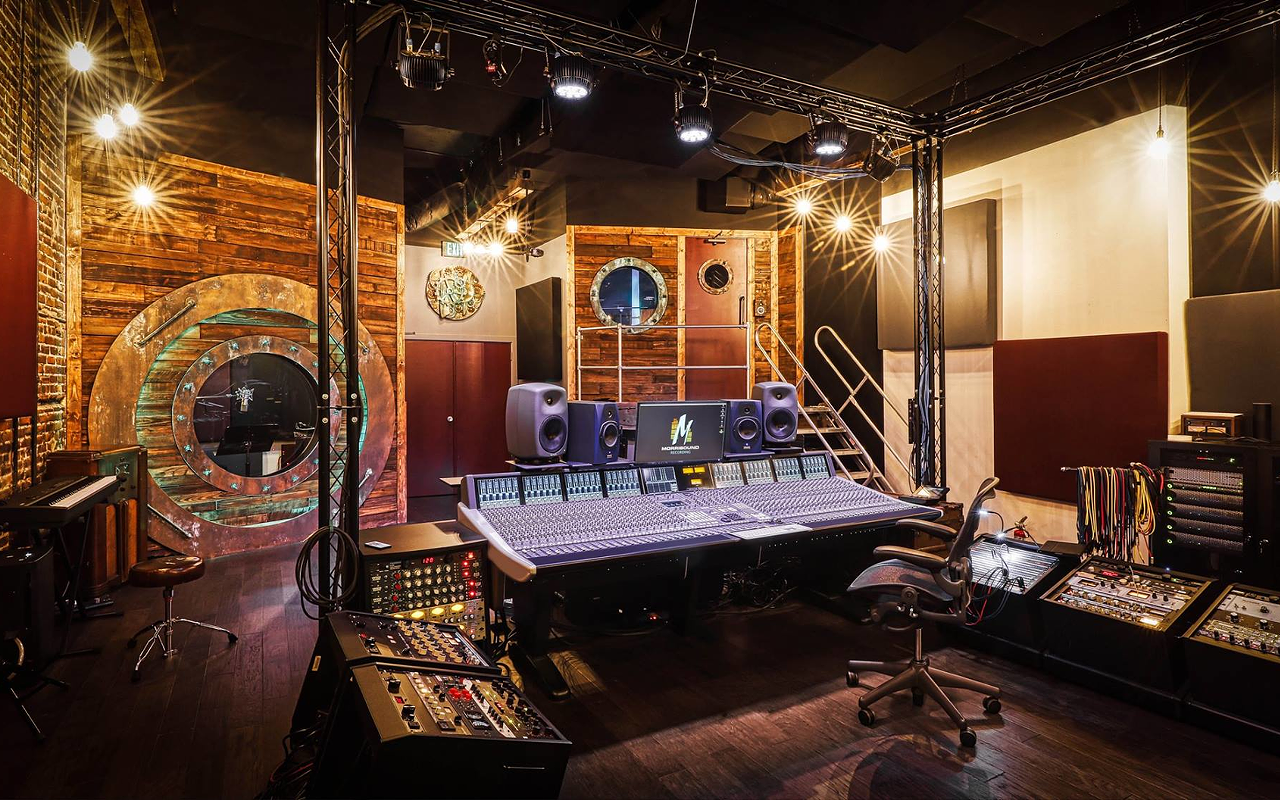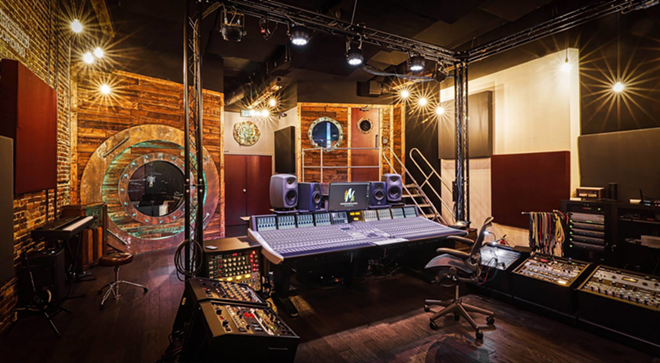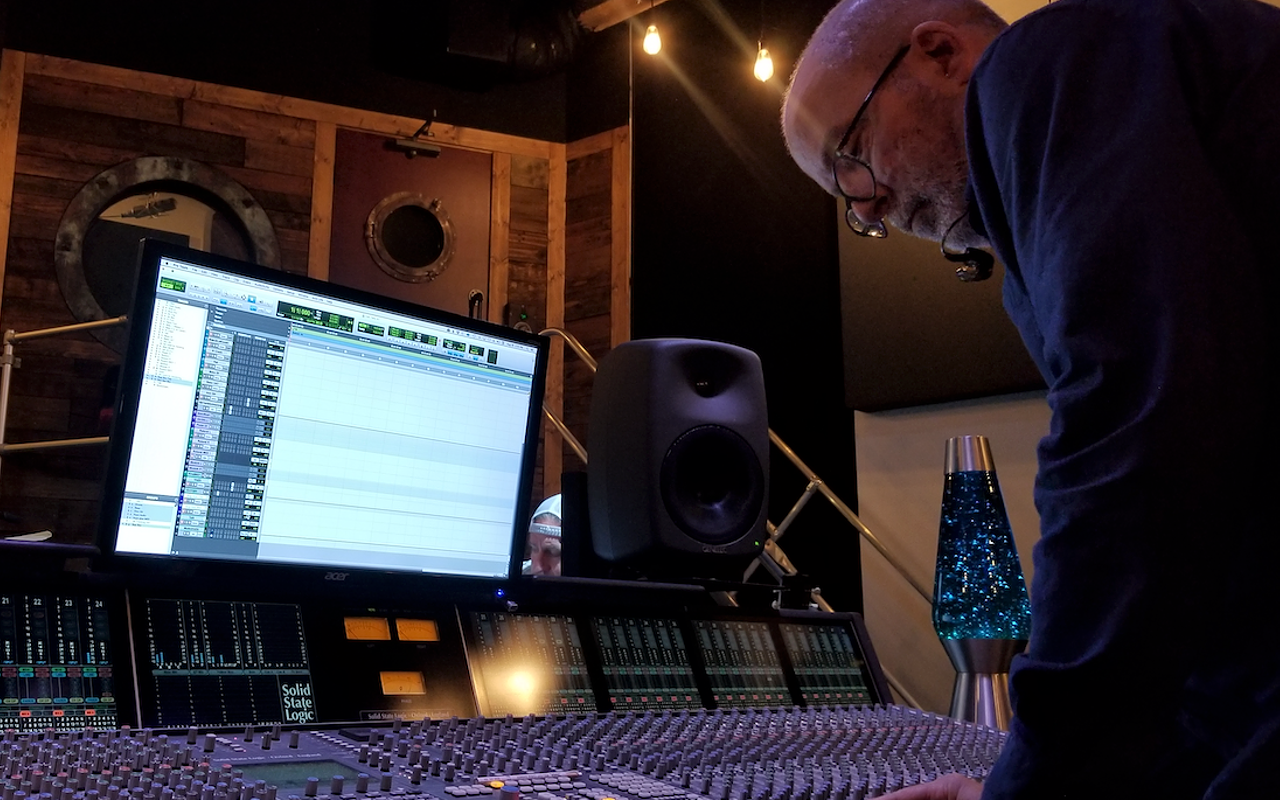Phone conversations, he said, are particularly difficult because they increase the distortion in his hearing, which is already burdened by acute tinnitus—not just the ringing-in-your ears sort, but tinnitus that, “is more wideband and includes low-frequency stuff,” he said. “There are times when it’s so roaring that I can hardly hear anything that’s spoken.”
Morris, 66, announced his retirement from studio engineering—effective immediately—via social media on Tuesday, Feb. 1. It was met with a well-deserved outpouring of love and support from the music community and beyond. During the four decades he has owned and run Morrisound with his brother Jim, Tom has recorded a remarkably eclectic array of music, from big-band jazz to thrash metal. And Morrisound has its share of gold and platinum records on the wall.
Tom Morris suffers from an auto-immune disorder called Meniere’s Disease, which manifests in a variety of forms. Morris’s will “likely cause me to lose my hearing completely,” he said, almost matter-of-factly. “How long that takes varies from patient to patient.”
There is no causal relationship between Morris’s line of work and his affliction.
“It’s purely due to an infection of the inner ear caused by a virus,” he asserted. “It has had nothing to do with [being exposed to loud music]. In fact, most of the artists I worked with thought the music was too quiet. They’d want me to turn it up. When I did live mixes, I wore custom ear earplugs. There was no way I was going to stand there and mix in front of 110 db.”
Jon Oliva, a founding member of Trans-Siberian Orchestra and, before that, the metal band Savatage, added, “Tom Morris is the one guy who taught me how to work at low volumes. Whenever I’d turn a playback way up, he’d leave the control room. I remember him saying to me, ‘if it sounds good quiet, it’s only gonna sound better when it’s cranked.’ Tom and Jim are like my brothers. They got such a great sound for the first Savatage record [Sirens] that a lot of metal bands wanted to use the studio.”
Morris first detected problems with his hearing back in the 1990s while recording Cheap Trick singer Robin Zander for a movie soundtrack. “I picked up the telephone to call the movie company about what format they needed the product delivered in,” he recalls. “I had to switch ears to grab my notepad and noticed that the pitch of the dial tone had changed from one ear to the other. It really freaked me out.”
That first bout with the virus lasted a month and then receded. Morris said that the disease was kept in check for nearly 15 years with antiviral medication, but it’s efficacy ultimately wore off. Some days are worse than others, and on occasion, usually early in the day, his hearing “reverts to normal,” he said. “But it’s getting worse and worse, and it’s not fair to the artists when I tell them I can’t work on any given day.”
When his condition is in full effect, Morris cannot hear the sonic details necessary to evaluate music. Plus he can no longer depend on being able to gauge pitch. “It’s gotten to the point where I can’t tell when someone is sharp or flat,” he said.
Having one’s hearing gradually deteriorate would be devastating for anyone, let alone a recording engineer. Morris looks at his condition this way: “I’m not happy about it, but I’m not depressed. I’ve had a long time to process that this was somewhat inevitable. If it happened overnight or in a week, I’m sure I’d be depressed. But this is something I’ve been dealing with for the last 20 years, so I feel I’m prepared. I’m blessed to have the career that I’ve had.”
Morris will continue handling Morrisound’s business affairs. “I’ll be spending more time behind an office desk now that I’ll be moving away from the recording desk,” he wrote on Facebook.
I asked him if he has considered his legacy. Morris paused, then said, “I’ve always loved working with musicians. I’ve gotten so much out of it, and I’ve never really thought about what they got out of it.”
Chuck Owen, composer and leader of the big band Jazz Surge, has employed Morris as an engineer on nearly all of his recording projects. He offered this bit of perspective in an email:
“The things I’ve appreciated most about Tom are his shared commitment/dedication to musical quality, his willingness to try and understand and support the client’s artistic sensibilities rather than his own, his seemingly endless patience, and his coolness under pressure. There have been no end of unanticipated challenges that have arisen over 40 years—electrical outages, fire alarms, data losses, computer crashes. I’m staring calamity in the eye and Tom’s calmly looking for a solution.”
Short of a major medical breakthrough, there is no solution for Tom Morris’s hearing loss. But judging by our phone call, he is taking the news calmly. And bravely.





